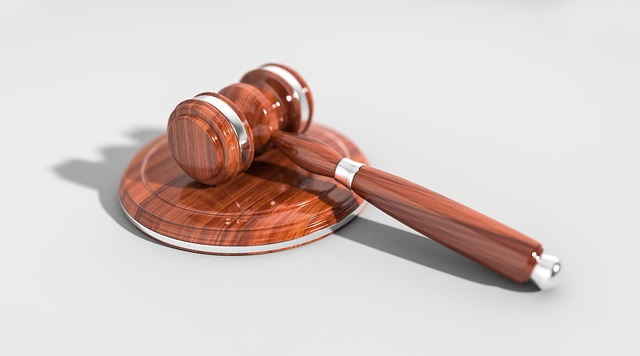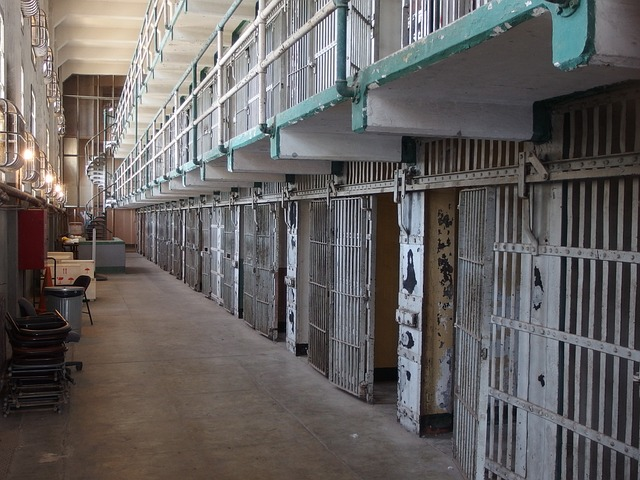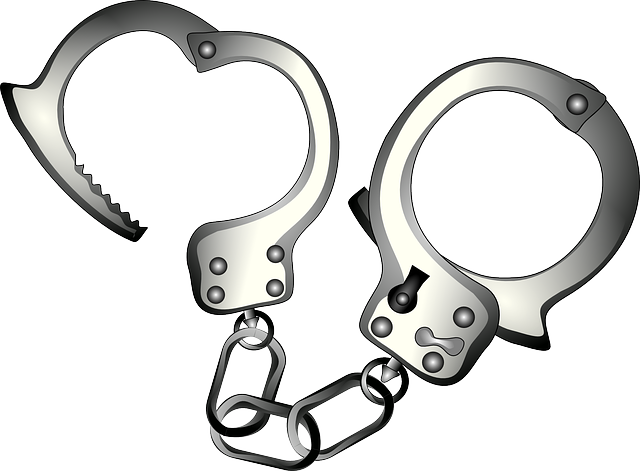Criminal Law in Arizona: Felonies vs Misdemeanors, What’s the Difference?
Imagine being accused of a crime in Arizona and feeling overwhelmed by the legal jargon surrounding your case. What’s the difference between a misdemeanor and a felony? How does this impact your future? We understand how confusing and intimidating the whole criminal law and justice system can be. In this post, we’ll guide you through the distinctions between felonies vs misdemeanors in Arizona, and how these differences affect sentencing, consequences, and your legal options. By the end, you’ll be better equipped to navigate the complexities of your case.
Short Summary
- Understanding Arizona’s criminal charges is essential to developing a defense strategy.
- Felonies are the most serious crimes in Arizona, carrying significant penalties and lifelong consequences.
- Experienced legal counsel can help you understand your rights and options when facing criminal charges in the state of Arizona.
Understanding Arizona’s Criminal Charges
 In Arizona, criminal charges are categorized into three types: Civil offenses, misdemeanors, and felonies. Civil offenses are the least severe, usually involving only a fine and no jail time. Misdemeanors, on the other hand, are considered more serious than Civil offenses, but less severe than felonies. These offenses may result in penalties such as incarceration for less than a year, community service, fines, rehabilitation, or probation. Felonies, the the most serious crime of the three, carry a minimum of one year in prison and can extend to decades or even a lifetime. With such a wide range of consequences, it’s crucial to consult a criminal defense attorney to help you navigate the complexities of your case.
In Arizona, criminal charges are categorized into three types: Civil offenses, misdemeanors, and felonies. Civil offenses are the least severe, usually involving only a fine and no jail time. Misdemeanors, on the other hand, are considered more serious than Civil offenses, but less severe than felonies. These offenses may result in penalties such as incarceration for less than a year, community service, fines, rehabilitation, or probation. Felonies, the the most serious crime of the three, carry a minimum of one year in prison and can extend to decades or even a lifetime. With such a wide range of consequences, it’s crucial to consult a criminal defense attorney to help you navigate the complexities of your case.
While all criminal offenses are serious, there is a significant difference in the severity and consequences of misdemeanors and felonies. Misdemeanor crimes are typically nonviolent offenses, such as disorderly conduct or shoplifting, and carry less severe penalties than felonies. Felony crimes, however, often involve physical violence or other aggravating factors and carry much harsher penalties, such as longer prison sentences and larger fines. Understanding these differences is essential in grasping the potential consequences of a criminal charge and in developing an effective criminal defense strategy.
Civil offenses
Civil offenses are the least severe type of criminal offense and do not involve jail time. Instead, those found guilty of an infraction typically face minimal fines. In Arizona, noise violations, ticket scalping, and trespassing are some of the most common Civil offenses. All of these can result in a fine or other penalty.
Generally, Civil offenses will not appear on your criminal record, which can be a relief for those facing such charges. However, it’s important to be mindful of the potential consequences if you fail to address the fines associated with an infraction, as the repercussions may intensify.
Misdemeanors
Misdemeanors are criminal offenses that fall between Civil offenses and felonies in terms of severity. They often involve non-violent crimes such as aggressive speeding, driving under the influence (DUI), shoplifting, vandalism, or possession of drug paraphernalia. Misdemeanors are divided into classes, with Class 1 misdemeanors being the most serious. A conviction of a Class 1 misdemeanor in Arizona may result in a maximum jail sentence of six months and a fine of $2,500 for a first offense.
Although misdemeanors are less severe than felonies, they should not be taken lightly. A misdemeanor conviction can have lasting effects on your life, such as difficulty finding employment or obtaining certain licenses. Furthermore, multiple misdemeanor convictions can lead to stiffer penalties and even escalate to felony charges in some cases.
It’s crucial to consult with an experienced criminal defense attorney to understand the potential consequences of a misdemeanor conviction and develop the best possible strategy for your case.
Felonies
Felony offenses are the most serious crimes in Arizona and carry the harshest penalties, including lengthy prison sentences and substantial fines. Examples of felony crimes in the state include manslaughter or murder, aggravated assault, kidnapping armed robbery, grand theft, tax evasion, perjury, and parole or probation violations. The lifelong consequences of a felony conviction are significant and far-reaching, affecting various aspects of your life such as employment, housing, and personal relationships.
Given the severity of felony crimes and their penalties, it’s essential to have a knowledgeable criminal defense attorney on your side to help you navigate the complexities of the criminal justice system and fight for the best possible outcome. An experienced attorney can advise you on your legal options, gather evidence to support your case, and advocate for reduced charges or penalties on your behalf.
Misdemeanor Classifications in Arizona
 Misdemeanors in Arizona are divided into three classes, with Class 1 misdemeanors carrying the most severe penalties. Class 2 and Class 3 misdemeanors are less severe, with the former carrying a maximum jail sentence of four months and a $750 fine, and the latter carrying a maximum jail sentence of 30 days and a $500 fine.
Misdemeanors in Arizona are divided into three classes, with Class 1 misdemeanors carrying the most severe penalties. Class 2 and Class 3 misdemeanors are less severe, with the former carrying a maximum jail sentence of four months and a $750 fine, and the latter carrying a maximum jail sentence of 30 days and a $500 fine.
It’s important to understand these classifications and their associated penalties to better comprehend the potential outcomes of your case and strategize your defense accordingly.
Class 1 Misdemeanors
Class 1 misdemeanors are the most serious type of misdemeanor offenses in Arizona. These crimes may result in a maximum fine of $2,500 plus applicable surcharges, up to six months of incarceration, and up to three years of probation (or five years for DUI).
Additionally, Class 1 misdemeanors can have far-reaching implications, such as difficulties in obtaining employment, revocation of certain rights and privileges, and potential expungement of your criminal record.
As such, it’s crucial to consult with an experienced criminal defense attorney to navigate the complexities of your case and minimize the consequences of a Class 1 misdemeanor conviction.
Class 2 Misdemeanors
Class 2 misdemeanors in Arizona are criminal offenses that are deemed to be nonviolent crimes less severe than felonies but more severe than Civil offenses. Examples of Class 2 misdemeanors include shoplifting, disorderly conduct, and driving under the influence (DUI).
These offenses may result in jail sentences of up to four months and fines totaling $750. Even though Class 2 misdemeanors are considered less severe than Class 1 misdemeanors, it’s important to take these charges seriously and consult with an experienced criminal defense attorney to minimize the potential consequences.
Class 3 Misdemeanors
Class 3 misdemeanors are considered minor offenses in Arizona, with a potential penalty of up to 30 days in jail and fines of up to $500. Examples of Class 3 misdemeanors include criminal speeding and assault.
While these charges may seem less severe compared to other misdemeanor classifications, it’s important to take them seriously, as the consequences of a conviction can still impact your life. Consulting with a criminal defense attorney can help you better understand your legal options and possible outcomes.
Felony Classifications in Arizona
 In Arizona, felonies are divided into six classes, with Class 1 felonies carrying the most severe penalties. Classes 2 through 6 have varying degrees of severity, with each class carrying different prison sentence lengths and potential fines.
In Arizona, felonies are divided into six classes, with Class 1 felonies carrying the most severe penalties. Classes 2 through 6 have varying degrees of severity, with each class carrying different prison sentence lengths and potential fines.
Understanding these classifications and their associated penalties is crucial in comprehending the potential consequences of your case and strategizing your defense accordingly.
Class 1 Felonies
Class 1 felonies in Arizona are the most serious criminal offenses and include only two crimes: first-degree murder and second-degree murder. The legal consequences for these crimes are severe, with first-degree murder punishable by either the death penalty or life imprisonment, and second-degree murder carrying a prison sentence of 10 to 29 years.
Given the gravity of these charges, it’s essential to have an experienced criminal defense attorney on your side to help you navigate the complexities of your case and fight for the best possible outcome.
Class 2-6 Felonies
 Felonies classified as Class 2 through 6 in Arizona are graded according to the severity of the criminal offense. For example, Class 2 felonies are considered the second-most serious type of criminal offense and carry a minimum sentence of three years and a maximum of 12.5 years.
Felonies classified as Class 2 through 6 in Arizona are graded according to the severity of the criminal offense. For example, Class 2 felonies are considered the second-most serious type of criminal offense and carry a minimum sentence of three years and a maximum of 12.5 years.
On the other hand, Class 6 felonies are the least severe felony classification and may include fines, probation, or a prison sentence ranging from four months to two years. Understanding the distinctions between felony classes is essential in strategizing your defense and working towards the most favorable outcome for your case.
Sentencing Factors for Felonies and Misdemeanors
 When sentencing for felonies and misdemeanors in Arizona, factors such as the nature of the crime, court findings, aggravated and mitigating circumstances, prior criminal history, and the defendant’s age and capacity to appreciate the wrongfulness of certain crimes and their actions are taken into consideration. Sentencing for felonies is determined by a presumptive range of prison time for each crime, which may be subject to reduction or extension depending on certain circumstances.
When sentencing for felonies and misdemeanors in Arizona, factors such as the nature of the crime, court findings, aggravated and mitigating circumstances, prior criminal history, and the defendant’s age and capacity to appreciate the wrongfulness of certain crimes and their actions are taken into consideration. Sentencing for felonies is determined by a presumptive range of prison time for each crime, which may be subject to reduction or extension depending on certain circumstances.
Understanding how these factors play a role in determining the penalties for felonies and misdemeanors can help you and your criminal defense attorney build a more effective legal strategy.
Aggravating Factors
Aggravating factors refer to facts or circumstances surrounding a felony-level criminal offense that increase the severity of the offense. Recognized aggravating factors in Arizona include prior convictions domestic violence, grave risk of danger, murder with pecuniary gain, inmate murders, and particularly heinous or depraved murders.
If the trier of fact identifies aggravating circumstances and the court does not identify any mitigating circumstances, the court will impose an aggravated sentence. Understanding the implications of aggravating factors on your case can help you and your attorney strategize your defense and work towards minimizing the severity of your sentence.
Mitigating Factors
Mitigating factors are circumstances that can reduce the severity of a sentence for a crime committed. Examples of mitigating factors include a defendant’s age, mental state, history of abuse, lack of criminal record, and a minor role in the offense.
The court will consider mitigating factors in relation to aggravating factors when deciding on an appropriate sentence. Understanding and presenting mitigating factors can be crucial in obtaining a more favorable outcome for your case.
Role of Defense Attorneys
Defense attorneys play a crucial role in advocating for their clients during sentencing for felonies and misdemeanors in Arizona. They may engage in negotiations with the prosecutor, present mitigating factors, and advocate for a reduced sentence on behalf of their clients.
By working closely with your defense attorney, you can ensure that all relevant factors are taken into account during your sentencing and increase your chances of obtaining a more favorable outcome.
Consequences of Criminal Convictions
 Criminal convictions in Arizona can have far-reaching consequences beyond the immediate penalties imposed by the court. These consequences may include employment challenges, loss of rights and privileges, and expungement possibilities.
Criminal convictions in Arizona can have far-reaching consequences beyond the immediate penalties imposed by the court. These consequences may include employment challenges, loss of rights and privileges, and expungement possibilities.
Understanding the full scope of these consequences is essential in making informed decisions about your case and strategizing your defense accordingly.
Employment Challenges
 Individuals with criminal convictions in Arizona often face significant challenges in finding employment. Employers are legally allowed to ask about prior convictions during the hiring process, which may make it difficult for those with criminal records to secure a job.
Individuals with criminal convictions in Arizona often face significant challenges in finding employment. Employers are legally allowed to ask about prior convictions during the hiring process, which may make it difficult for those with criminal records to secure a job.
However, some companies in Arizona are open to hiring qualified people with criminal records. Being aware of these potential employment challenges can help you make informed decisions about your case and work with your attorney to minimize the impact of your conviction on your future career prospects.
Loss of Rights and Privileges
Individuals convicted of a felony in Arizona lose certain rights and privileges, such as the right to vote, serve on a jury, hold public office, obtain commercial driver’s licenses, possess a gun, or join the U.S. armed forces.
In some cases, civil rights may be automatically restored upon completion of probation or absolute discharge from imprisonment for first-time felonies. It’s important to understand the full extent of these losses and work with your attorney to minimize their impact on your life.
Expungement Possibilities
Expungement is the process of sealing documents related to a misdemeanor or felony, which prevents the information from the permanent record from being available to the general public and allows formerly convicted individuals to not disclose their criminal history. Those who commit nonviolent, low-level misdemeanors for the first time are usually eligible to have their record expunged. This gives those individuals an opportunity to start anew.
In some states, an individual must wait for a period of 10-15 years before filing for expungement. However, they may then successfully pursue it. Understanding your eligibility for expungement and working with your attorney to navigate the process can help minimize the long-term consequences of your criminal conviction.
Role of Prosecutors
Prosecutors are tasked with bringing charges against individuals accused of criminal offenses, providing evidence to support their claims, negotiating plea agreements, suggesting sentences to the court, and upholding justice for both victims and defendants. They also have the discretion to decide which charges to bring against an accused person, making their role in the criminal justice system crucial to ensuring a fair and just outcome for all parties involved.
Understanding the role of prosecutors can help you and your attorney prepare a strong defense and effectively negotiate with the prosecution to minimize the consequences of your charges.
Why You Should Hire The Harding Firm for Your Criminal Defense Team
The Harding Firm specializes in providing criminal defense services, including misdemeanors, civil traffic offenses, felonies, drug offenses, and sex offenses. Their dedication to “Legal Guidance with Integrity” and offering quality services at competitive prices sets them apart as the premier law firm of choice for criminal defense in Arizona.
By choosing The Harding Firm for your criminal defense team, you’ll have experienced and knowledgeable attorneys on your side to help you understand Arizona’s criminal justice system, strategize your defense, and fight for the best possible outcome in your case.
Summary
Understanding the distinctions between felonies and misdemeanors in Arizona is crucial to navigating the complexities of the criminal justice system and strategizing your defense. The severity of these offenses, their associated penalties, and their lasting consequences necessitate the guidance of an experienced criminal defense attorney. The Harding Firm can provide you with the expert legal representation you need to fight for the best possible outcome. Don’t let a criminal charge define your future – contact The Harding Firm today to explore your legal options and begin your journey towards a brighter tomorrow.
Frequently Asked Questions
What is the difference between a misdemeanor and a felony in Arizona?
Misdemeanors in Arizona are considered less serious than felonies and can result in a jail sentence of up to 6 months.
Conversely, felonies are much more serious crimes which can result in prison sentences ranging from 1-3 years and fines up to $150,000.
Is a misdemeanor a felony in Arizona?
In Arizona, misdemeanors are less serious offenses than felonies and can result in up to 6 months in jail or a fine of up to $2,500.
Felonies, on the other hand, are punishable by at least a year in state prison here. Therefore, it is clear that misdemeanors are not considered felonies in Arizona.
What is considered a felony in AZ?
In Arizona, any crime that is punishable by a prison sentence of more than one year is considered a felony. Felony offenses come with higher penalties and harsher punishments, so it’s important to understand the severity of the crime if you have been charged with one.
The consequences of a felony conviction can be severe, including jail time, fines, and a criminal record that can follow you for the rest of your life. It’s important to seek legal advice if you need legal advice.
How many misdemeanors equal a felony in Arizona?
In Arizona, misdemeanors are considered less severe offenses than felonies and the most severe level of misdemeanor would be a class 1. Class 1 misdemeanors may carry jail time, though not as much as a felony.
Therefore, a person can be charged with multiple misdemeanors to reach the equivalent of a felony charge.
What is the lowest felony?
The lowest felony is a Class I felony. This type of crime carries the least severe penalties and involves making a threat to commit a crime that could result in serious harm, injury, or damage.
Penalties for a Class I felony can range from probation to up to five years in prison. The court may also impose fines.


